Alumni Profiles
Fall 2023
From serving vulnerable communities to forging critical connections to move research from the bench to the bedside, our alumni are making an impact.
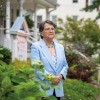
Opening Doors
Dr. Sue Lagarde
CEO, Fair Haven Community Health Care
In the aftermath of Hurricane Katrina in August 2005, gastroenterologist Dr. Sue Lagarde (M.D. ’75) made a volunteer trip to Biloxi, Miss., that would ultimately change the course of her medical career.
The volunteers’ trailer was parked in the lot of the Coastal Family Health Center, one of the nation’s 1,400 federally qualified health centers that provide services to vulnerable communities. She walked in to offer her help. “It was an eye-opener — a profound experience,” recalls Dr. Lagarde. She would go on to get her Mississippi medical license and make quarterly trips to treat patients over the next several years, even as she continued her gastroenterology practice in Southern Connecticut. And she launched a nonprofit to provide access to specialty care for the uninsured.
At age 60, Dr. Lagarde felt ready to step away from her practice. After finishing an executive MBA program at Yale (where she had completed her gastroenterology residency and fellowship), she found the “perfect fit” inspired by her earlier service in Biloxi: as CEO of Fair Haven Community Health Care. The federally qualified health center in Connecticut provides comprehensive health care at 18 locations to more than 32,000 primarily low-income patients with care that is culturally responsive.
“Ten years later, I continue to learn every day and I love what I do,” she says of her role overseeing a staff of nearly 300 people. “A big, big part of my work is advocacy and trying to be the voice of our patients. Quite honestly, being a doctor opens doors. I have the satisfaction of knowing I have a voice, which is heard, particularly at the state level, where most decisions happen that impact our patients most significantly.”
The challenges her families face are considerable: food insecurity, a shortage of affordable housing, substance use disorder — and a lack of medical insurance. “We serve a largely immigrant community and about one-third are uninsurable because they are undocumented,” says Dr. Lagarde.
But there are victories. Last January, the Connecticut General Assembly passed legislation making it possible for children up to age 12 who meet financial eligibility requirements to qualify for state-funded health insurance. “This is huge,” says Dr. Lagarde. “We had over 800 kids who were uninsured and now many of them are insured.”
Her message to physicians just starting out? “Where you end up can be in so many different places and you can have an impact. So think creatively about what gives you satisfaction — and aim for that because you can make it happen.”
— Sue DePasquale

Mission-Driven
Dr. Anne C. Beal
Founder, AbsoluteJOI Skincare
Talk to Dr. Anne C. Beal (M.D. ’88) for just a few minutes about her new company, AbsoluteJOI Skincare, and it quickly becomes clear she is driven by more than a desire to help women of color achieve healthy skin and ageless beauty.
“It is a health mission, a social justice mission and an equity mission,” says Dr. Beal — and one that brings full circle a varied 30-year career that includes influential roles in academic medicine, health policy, philanthropy and the pharmaceutical industry.
The throughline of her journey? A commitment to overcoming health disparities and to putting patients at the center of health care.
After earning her master’s in public health and serving homeless individuals in New York, Dr. Beal was inspired to pursue policy solutions, “so that mobile medical units weren’t needed in the first place.” As a faculty researcher at Harvard, she helped define the nascent field of health disparities, then funded the research of other investigators as a program officer with the Commonwealth Fund and as president of the Aetna Foundation before being selected in 2011 to help build the Patient-Centered Outcomes Research Institute (PCORI) under the Obama Administration. “There was literally no guidebook on patient-centricity in research. Instead of feeling lost, we decided it was liberating because there were no precedents to tell us we were doing it incorrectly,” she says.
It was after a subsequent move to Paris, to serve at Sanofi S.A. as the industry’s first chief patient officer for a large pharmaceutical corporation, that Dr. Beal decided to launch her own line of “clean” skincare products. “I observed high rates of the atopic triad among my patients [the tendency of asthma, eczema and allergies to occur together] and saw a market opportunity because over 60% of Black women have sensitive skin, compared to 35% of white women,” she notes. Moreover, she says, the majority of personal care products marketed to women of color in the United States contain questionable ingredients, including parabens and phthalates. These are concentrated in estrogen-sensitive tumors, which are more common and aggressive among Black and Latina women.
“So for me, this focus on ‘clean beauty’ is more than a fad. It’s an absolute imperative for the health of women of color,” she says.
Dr. Beal is also investing in other companies founded by women of color through a program that provided her start-up with funding. “Right now, about 2.5% of venture capital funding goes to women founders, including 0.64% for Latina founders and 0.41% for Black women founders — that’s egregiously low,” she says. “I’m thrilled to be part of an ecosystem of BIPOC women funding and supporting other women.”
— Sue DePasquale

Changing the Future of STEM
Dr. Courtney Carroll Alexander
Assistant professor, University of North Carolina Pembroke
As an assistant professor at the University of North Carolina Pembroke, Dr. Courtney Carroll Alexander (Ph.D. ’17) is teaching students whom she believes will change the future of science.
“The problems we’re facing are more complex than ever before, and having increased diversity increases the voices and the number of ideas at the table,” explains Dr. Alexander, a cellular neuroscientist in UNC Pembroke’s Department of Biology. “I really want to help grow that pipeline of students who may have never considered themselves as scientists to get into STEM fields.”
Dr. Alexander came to UNC Pembroke after completing a postdoctoral fellowship at University of Texas Health Science Center- San Antonio, which was funded by an Institutional Research and Academic Career Development Award — a program sponsored by the NIH that requires recipients to teach while conducting research.
“If you’re working by yourself on a bench, doing experiment after experiment and not seeing any results, it’s very discouraging,” says Dr. Alexander, whose research focuses on age-related neurodegenerative disorders. “I go into my classroom, and I get to teach a subject and watch students learn new information, connect dots and put a thesis together. All that to me is very exciting and empowering.”
UNC Pembroke’s unique place as a diverse Native non-tribal serving institution and as one of four NC Promise schools, which offer reduced tuition to in-state students, means that students are often the first in their families to attend college and may not have traditional college preparation.
Dr. Alexander says her time studying neuroscience at Weill Cornell Medicine Graduate School of Medical Sciences focused her professional goals on science instruction, and she finds teaching students foundational skills to be infinitely rewarding. Many of her students have gone on to do graduate STEM work.
“I love working with those students — the vast majority of them are really excited to be here, to learn and to get that education,” says Dr. Alexander. “I love when you can see that light bulb turn on in their head and something just clicks.”
— Mary Zajac
Photo: Bob Handelman; Portraits: Nigel Buchanan
Fall 2023 Front to Back
-
From the Dean
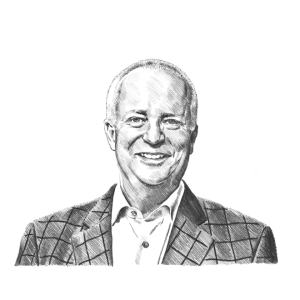
Message from the Dean
New Dean Robert A. Harrington, M.D. reflects on Weill Cornell Medicine’s tripartite mission — to care, to discover and teach — and ways to deepen and advance these goals. -
Features

Cancer Vaccines’ Promise
Patients are closer than ever to benefiting from a new treatment approach, thanks to strides in immunotherapy and COVID-19 vaccine technology.
-
Features

Silent Partners
How the brain’s less celebrated cells may drive Alzheimer’s disease and other dementias. -
Features
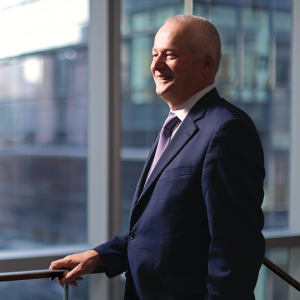
Future Forward
Dean Robert A. Harrington, M.D., shares his vision for Weill Cornell Medicine in a wide-ranging Q&A.
-
Notable

A New Residence for Graduate and Medical Students
A modern new residence on the Upper East Side campus will enhance the student experience. -
Notable

Dateline
Dr. Jyoti Mathad’s research could transform maternal health in under-resourced countries. -
Notable

Overheard
Weill Cornell Medicine faculty members are leading the conversation about important health issues across the country and around the world. -
Notable

News Briefs
Notable faculty appointments, honors, awards and more — from around campus and beyond. -
Grand Rounds

Playing With Heart
A transplant serves up a new beginning. -
Grand Rounds
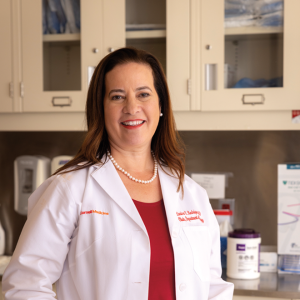
An End to Suffering in Silence
Weill Cornell Medicine’s Center for Female Pelvic Health is committed to treating women with dignity. -
Grand Rounds

News Briefs
The latest on teaching, learning and patient-centered care. -
Grand Rounds

3 Questions
During the COVID-19 pandemic, Weill Cornell Medicine adapted medical education. It wasn’t the first time the institution responded to historic public health events. -
Discovery

Making a Male “Pill”
A new “on-demand” method in development could offer men another choice for contraception. -
Discovery

Scientists Target Human Stomach Cells for Diabetes Therapy
Stem cells from the human stomach offer a promising approach to treating diabetes.
-
Discovery

Findings
The latest advances in faculty research, published in the world’s leading journals. -
Discovery

3 Questions
Dr. Gunisha Kaur and the team at the Weill Cornell Medicine Human Rights Impact Lab are finding ways to improve refugee health. -
Alumni
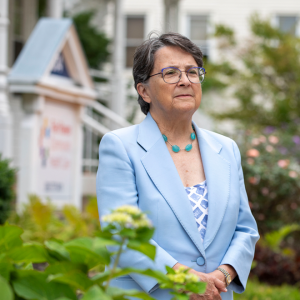
Profiles
From serving vulnerable communities to forging critical connections to move research from the bench to the bedside, our alumni are making an impact. -
Alumni
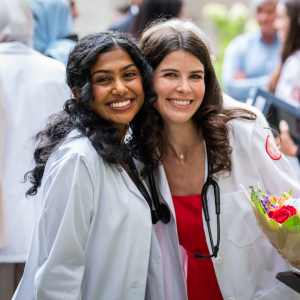
Notes
What’s new with you? Keep your classmates up to date on all your latest achievements with an Alumni Note. -
Alumni

In Memoriam
Marking the passing of our faculty and alumni. -
Alumni

Moments
Marking celebratory events in the lives of our students, including the White Coat Ceremony and receptions for new students. -
Second Opinion

AI in RX
How can chatbots be used in medicine? -
Exchange
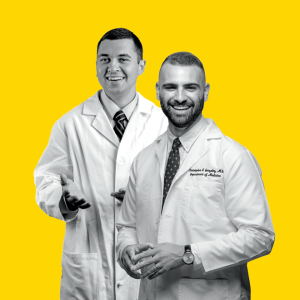
Diversifying Medicine
Two physicians discuss the unique experiences of Latino men in medicine and the crucial need for diversity. -
Muse
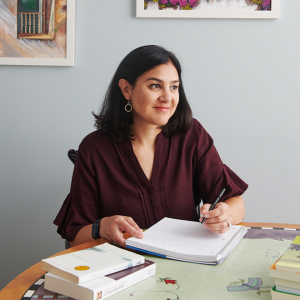
Writing to Make Meaning
Dr. Rachel Kowalsky is a pediatric emergency physician and an award-winning author. -
Spotlight
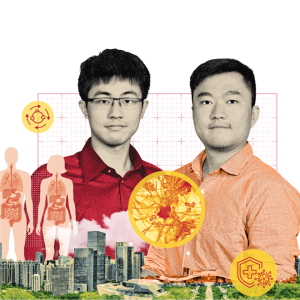
At the Forefront of Immunometabolism
Dr. Ke “Dave” Xu (Ph.D. ’21) and Dr. Anjin Xianyu (Ph.D. ’20), the founders of META Pharmaceuticals, are developing treatments for autoimmune diseases.